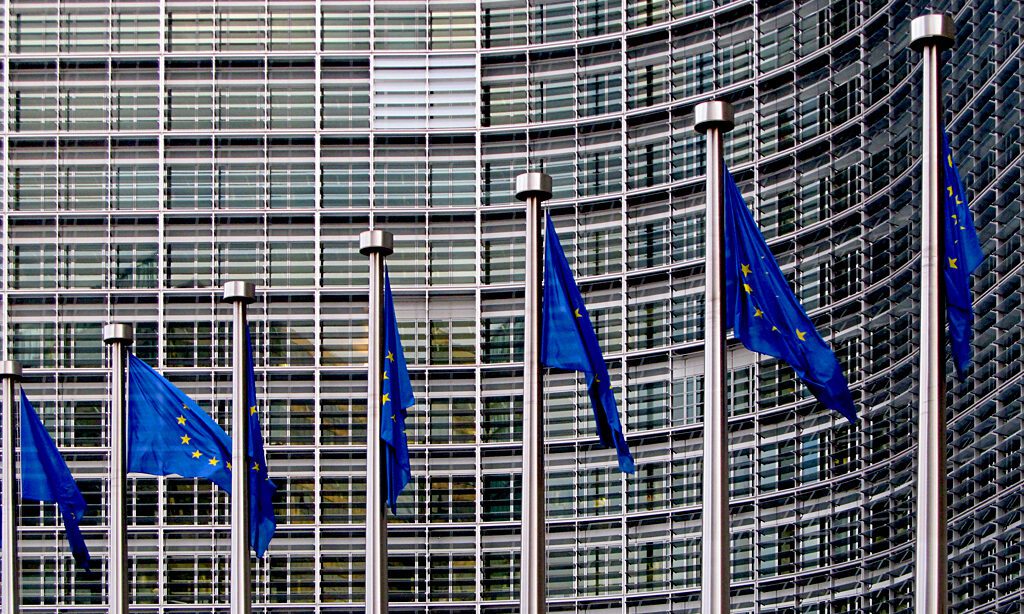The European Foreign Subsidies Regulation: Effective Means of Protecting Strategic Infrastructure or an Investment Impediment?

The European policy discourse is shifting away from economic openness to emphasizing security concerns in the context of Chinese stakes in strategic infrastructure. The European Foreign Subsidies Regulation is another piece of the puzzle that could change the balance of power between the EU institutions and national governments. While the mechanism promises to bring a more cohesive handling of Chinese bids for public contracts and M&A transactions buttressed by subsidies, it could also spark tensions within the EU.
This article is part of a series of articles authored by young, aspiring China scholars under the Future CHOICE initiative.
Since the financial crisis of 2008, Chinese investment in Europe has increased many times over. In the last 15 years, Chinese stakeholders built impressive portfolios with stakes in airports, the energy sector, digital infrastructure, and ports.
The inflow of Chinese capital has sparked a debate in Europe. In many countries, these investments are welcome as cash injections in the local economy and have also been supported as a part of the overall economic ties between the EU and China, where interdependence was seen as a net positive. Although Chinese FDI in Europe has been declining since 2017, it remains a contentious topic.
Just a few years ago, the EU was rolling out the red carpets to Chinese investment. One of the prominent proponents of attracting more Chinese capital into the European economy was Jyrik Katainen, the former vice president for jobs, growth, investment, and competitiveness in the European Commission, who argued that Chinese investment, particularly through the Belt and Road Initiative, could strengthen economic ties between Europe and China, foster connectivity, and promote European economic development.
However, since then, the European discourse on Chinese investment has shifted from a purely economic focus to a political-strategic one. The EU’s about-face can be attributed to growing concerns among Europeans that China may wield strategic infrastructure in the region for its own political interests, and even use it as leverage in case of a conflict. Experts have highlighted the potential dangers associated with Beijing’s control over enterprises owning stakes in such infrastructure. This realization has raised alarm bells in European political circles and has given rise to calls for a reevaluation of the EU’s approach to Chinese investment.
The Changing Balance
The balance between economic openness and security regarding Chinese investments in European strategic infrastructure has been shifting towards greater attention to European security needs since the heyday of Chinese investments in Europe in 2017. Most European countries have now introduced or tightened investment-screening regulations, recent examples include Germany, France, Poland, and the Czech Republic. These regulations allow the state to assess, investigate, authorize, condition, prohibit or unwind foreign direct investments based on a range of security and public order criteria. But since the European Union is a single market and the European economies and thus strategic infrastructure networks are intertwined, an effective security response can only be made at the European level.
Germany, France, and Italy emerged as trailblazers for European-level measures to address the strategic threat through investment screening. Consequently, the EU’s foreign investment screening mechanism was instituted in 2020, serving as the inaugural initiative of its kind within the EU’s purview. The mechanism functions as a tool to safeguard European strategic interests while simultaneously ensuring that the EU market remains open to foreign capital. To better achieve this delicate balance, the mechanism involved the European Commission for the first time in creating a framework for coordinating national FDI frameworks and information sharing.
Addressing Forging Investments in Strategic Infrastructure
The EU foreign investment screening mechanism was followed by the Foreign Subsidies Regulation (FSR). The FSR was designed to address specific concerns regarding inward investments in strategic European infrastructure, namely that foreign governments, like Beijing, would boost their enterprises with subsidies to enable them to acquire local businesses through mergers and acquisitions (M&A) thereby giving the country of origin a potential geopolitical tool. Of course, the FSR is also designed to protect European business interests as it contributes to shielding European enterprises from the distorted competition.
The FSR is scheduled for implementation on July 12, 2023, and comes with certain obligations regarding notification. Under the FSR, notification is required if the acquirer has received over €50 million in foreign financial contributions in the past three years, if the target is established in the European Union and generates more than €500 million in turnover, and if the transaction involves a change of control, a merger, or a joint venture. These requirements will become applicable from October 12, 2023.
Under the FSR, a foreign financial contribution is defined very broadly and refers to a range of actions related to the movement of financial resources or obligations, such as the infusion of capital, the granting of funds, the extension of loans or loan guarantees, the offering of fiscal incentives such as tax exemptions, and the provision or acquisition of goods and services. This broad definition can be seen as a deliberate policy choice. One of the main objectives of the FSR ought to be the generation of information on foreign financial contributions. In this context, having a broad scope is sensible.
Decision-Making Power under the FSR
The FSR also lends the European Commission two crucial powers. The information gathering power allows the European Commission to gather information by request, interview, and raids. As for enforcement, the European Commission will get the power to impose fines on enterprises that fail to comply with the notification requirements.
Under the FSR, the European Commission is also tasked with deciding whether a distortive subsidy is given. The European Commission can then adopt a no objection decision, a commitments/redressive measure decision, or a decision prohibiting M&A or the award of a public contract. The European Commission may also allow transactions that would otherwise be prohibited under the FSR based on balancing positive and negative effects. A prime example where the FSR could have been used is the Pelješac Bridge in Croatia, which connects the southern coastal area with the rest of the country. The tender to build the bridge was won by a Chinese consortium. The winning Chinese bid exasperated European competitors who were also competing for the project, as the Chinese bid was unusually cheap, fueling suspicions that it was aided by Beijing.
Considering recent concerns over the potential for foreign entities, particularly from China, to gain control of critical European infrastructure through funding strategic M&A, the implementation of the FSR will provide much-needed transparency and enable more precise monitoring of foreign subsidies in the European market. This, in turn, would allow European stakeholders to better understand the extent to which foreign entities are propping up tender bids and M&A activities, and to take appropriate measures to protect the EU interests.
The FSR will work in conjunction with existing mechanisms, such as the EU foreign investment screening framework, to help ensure that European assets and interests are safeguarded.
Balancing Security Needs and National Interests
Yet, there are also several questions remaining regarding the FSR and its implementation. One key line of criticism is that it grants the European Commission a new significant power, taking away competencies from national governments and disturbing the delicate balance of power between the European institutions and the member states. In practice, this means that the European Commission’s priorities may take precedence over those of member states, particularly with regard to economic openness and security interests. The recent row between the German Chancellor and the European Commission over the purchase of stakes in a container terminal in the port of Hamburg by COSCO highlights the potential for tensions in this area.
A second criticism of the FSR is that it places a heavy burden on enterprises, particularly in terms of notification requirements. This could create additional barriers to M&A deals, which may lead to a decrease in foreign capital investment in European enterprises. As a result, the FSR could hinder the competitiveness of the European Union as a business location.
While the FSR has the potential to provide much-needed transparency and protect European strategic infrastructure against geopolitically motivated M&A transactions supported by foreign subsidies, it also has drawbacks. The FSR could increase tensions between the European Institutions, national governments, and the regions of Europe, as views regarding prioritizing security interests over economic openness and foreign investments vary across the continent. However, if the EU truly wants to become a geopolitical actor, it will have no choice but to continue grappling with these challenges.
Written by
Tim Hildebrandt
Tim Hildebrandt is a Ph.D. candidate in political science and economics at the University of Duisburg-Essen and a Research Associate at the Ruhr West University of Applied Sciences. His research focuses on the intersection of politics, economics, and geography.


